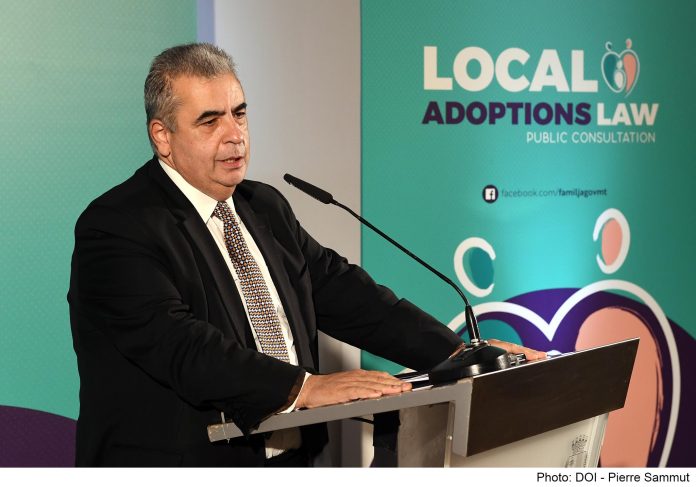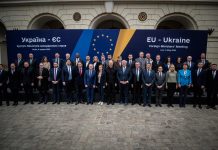The Ministry for Family, Children’s Rights and Social Solidarity launched a public consultation on local adoptions, as such aspects of local legislation need to be reviewed, discussed and amended, with the possibility of increasing the number of local adoptions.
Minister Michael Falzon announced the launch of this public consultation on Friday morning, while arguing that the ministry is aware of the number of children who are currently in the alternative care system and who therefore are lacking the opportunity to live and thrive within a family environment. Bridging these needs by ameliorating local legislation is an exercise that cannot be delayed any further and that this ministry is committed to undergo in the coming weeks.
At this stage, the ministry is presenting a set of proposals which will be examined further in the coming weeks. Stakeholders and professionals are invited to send their feedback on current legislation and proposals of reform to the ministry, which feedback and proposals will be examined and taken into consideration when drafting the amendments to the law.
Minister for the Family, Children’s Rights and Social Solidarity Michael Falzon added that a substantial addition to the current law is the regulation to open adoption. Local legislation as it stands simply provides for the possibility of having open adoption, however it does not regulate these matters in further depth. The law needs to regulate such access and needs to provide safeguards in case this contact does not remain in the best interest of the adopted child. The law needs to provide recourse for all the stakeholders involved to enforce their rights.
Minister Falzon spoke about the milestones achieved in the Child Policy sector, and mentioned the first Child Policy in 2017, and the new Child Protection Act, which is currently addressing a number of challenges in the field. Minister Falzon also mentioned the overall government policies and initiatives which are helping families, mainly the rise in children’s allowance, free childcare, child bonus, and a number of other financial benefits.
Legal Consultant Daniela Azzopardi Bonanno spoke about the issue of the surname of the child once the child is adopted also needs to be examined in further detail, keeping in mind that the child has a right to their own identity and to be an agent in such an influential decision of their lives. Tied to this, this exercise will also delve into providing the adopted child with information on their birth family prior to them becoming of age, as long as the necessary safeguards are taken to ensure that this is in their best interest.
At this stage, the ministry is proposing that it would be possible for an adopted child to make a request to access such information, but the child will need to be accompanied by a professional to make sure that the child can process such information in a healthy manner, particularly in the case that such request would create tension with the adoptive parents.
The involvement of the authorities in post-adoption matters needs to be regulated, particularly in the drawing up of post-adoption reports and in regulating access with the birth family when there is open adoption. Specialised services should also be available to the adopted child for support in settling in their new reality and to adapt to their new identity. Moreover, such services would support the child to explore and process any identity issues which come up at a later stage in their lives.
Support services should also be available to support the natural parents in understanding the implications of adoption and in processing such a reality. These services should also be a referral point when biological parents would like to connect again with their adopted child at a later stage in their lives to help them prepare for such a connection or to help them process the decision that this is not possible.
Chief Executive Officer of the Foundation for Social Welfare Services Alfred Grixti welcomed the idea of children who are in alternative care joining other families, as this could help further their development early in their childhood. He also emphasised the need for more holistic work in the field between different stakeholders.
Matthew Vella, Chief Executive Officer of the Social Care Standards Authority, spoke about the authority’s various milestones in the field, including the setting up of Regulatory Standards, and the National Strategy and the use of Blockchain, aiming to help adoptees in their search of origin of their biological parents.
Dean of the Faculty for Social Wellbeing Andrew Azzopardi spoke about the faculty’s research into local adoptions, where it emerges that cultural, institutional, legislative and financial are the main challenges when it comes to local adoptions.
The ministry will be receiving feedback by email on localadoptions@gov.mt, while the consultation document can be found on family.gov.mt. The public consultation will remain active until 31st December 2020.










